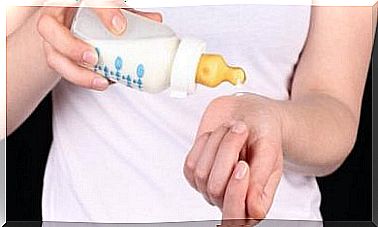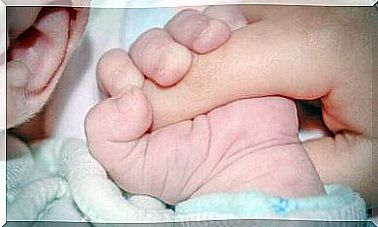Fetal Hiccups During Pregnancy: All You Need To Know – You Are Mom

The bond between mother and baby during pregnancy involves feeling various movements that are expected with some anxiety. However, fetal hiccups are a condition that often embarrasses pregnant women, mainly because this phenomenon is unrecognized. Why is it happening? Is this normal? In this article, we’ll tell you everything you need to know about this topic.
Hiccups in the fetus: is it normal?
That the baby has hiccups inside the womb during pregnancy should not be a cause for alarm. This is a phenomenon that occurs several times and is part of the development of the fetus. Therefore, it should be seen as something normal. This can last a few minutes or extend over half an hour. But the important thing is to know that it is not bothersome for the baby. In addition, many specialists associate fetal hiccups with a sign of vitality.
Since the baby’s organs are not mature, their diaphragm will occasionally contract and produce hiccups. In short, it’s a spasm. The diaphragm is the muscle which, by distension and contraction, is responsible for breathing. It separates the chest cavity from the abdominal cavity.
It is thanks to the hiccups that the diaphragm is exercised. It is a form of preparation so that the baby can breathe outside the mother’s womb. Remember that although a baby’s lungs do not work until birth, they still absorb amniotic fluid. This fluid, when it enters and leaves the lungs, causes contractions – hiccups – in the diaphragm. These contractions prepare the baby’s lungs to function properly after birth.

When can we feel it?
It is felt most clearly during the third trimester of pregnancy. Although it is not known for sure whether this also occurs in the early stages of pregnancy.
At the level of perception, what characterizes the hiccups of the fetus is that the mother feels a constant and rhythmic tapping. This is how it can be differentiated from kicking or other baby movements.
The functions of fetal hiccups
These spasms that the baby produces inside the womb play an important role in its development. According to specialists, hiccups are used to:
- Prepare the baby to breathe on his own after birth. As mentioned earlier, the diaphragm, which is the muscle that helps with breathing, trains for the time of birth.
- It is also linked to the development of the nervous system of the fetus.
- It is linked to the exercise of motor skills, especially swallowing and sucking. Sucking takes on real importance after the baby is born, because it prevents milk from entering the lungs.
- The contractions generated by the diaphragm help regulate the baby’s heart rate.
How to avoid it
While other common discomforts during pregnancy can be avoided or relieved, fetal hiccups cannot. That is, the mother, perceiving the hiccups, can not do anything about it. Also, you should know that this is a normal situation which poses no risk to the baby.
Many babies continue to hiccup even after birth. This is because his respiratory system still has to adapt to the outside world.

When to be concerned
Fetal hiccups are a phenomenon that is not fully understood and can be strange or even bothersome at first. However, under normal conditions, the mother should not worry and there is no need to see her doctor.
However, in situations where the hiccups are continuous for several hours or several days, it is advisable to consult a specialist. This way, you can be reassured that everything is working without any problems and your baby is healthy.
All of these perceptions deepen the mother’s bond with the baby. That is why it is good to know and understand what is going on each month of pregnancy so that you do not worry and enjoy the pregnancy to the fullest.









